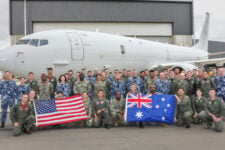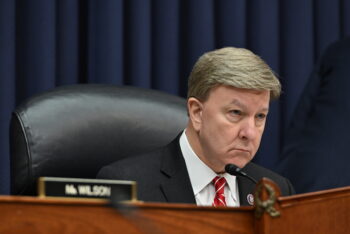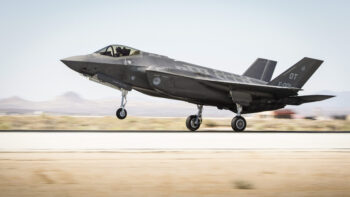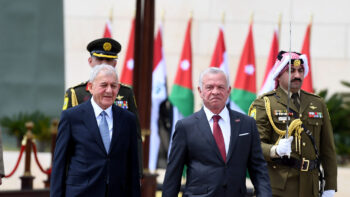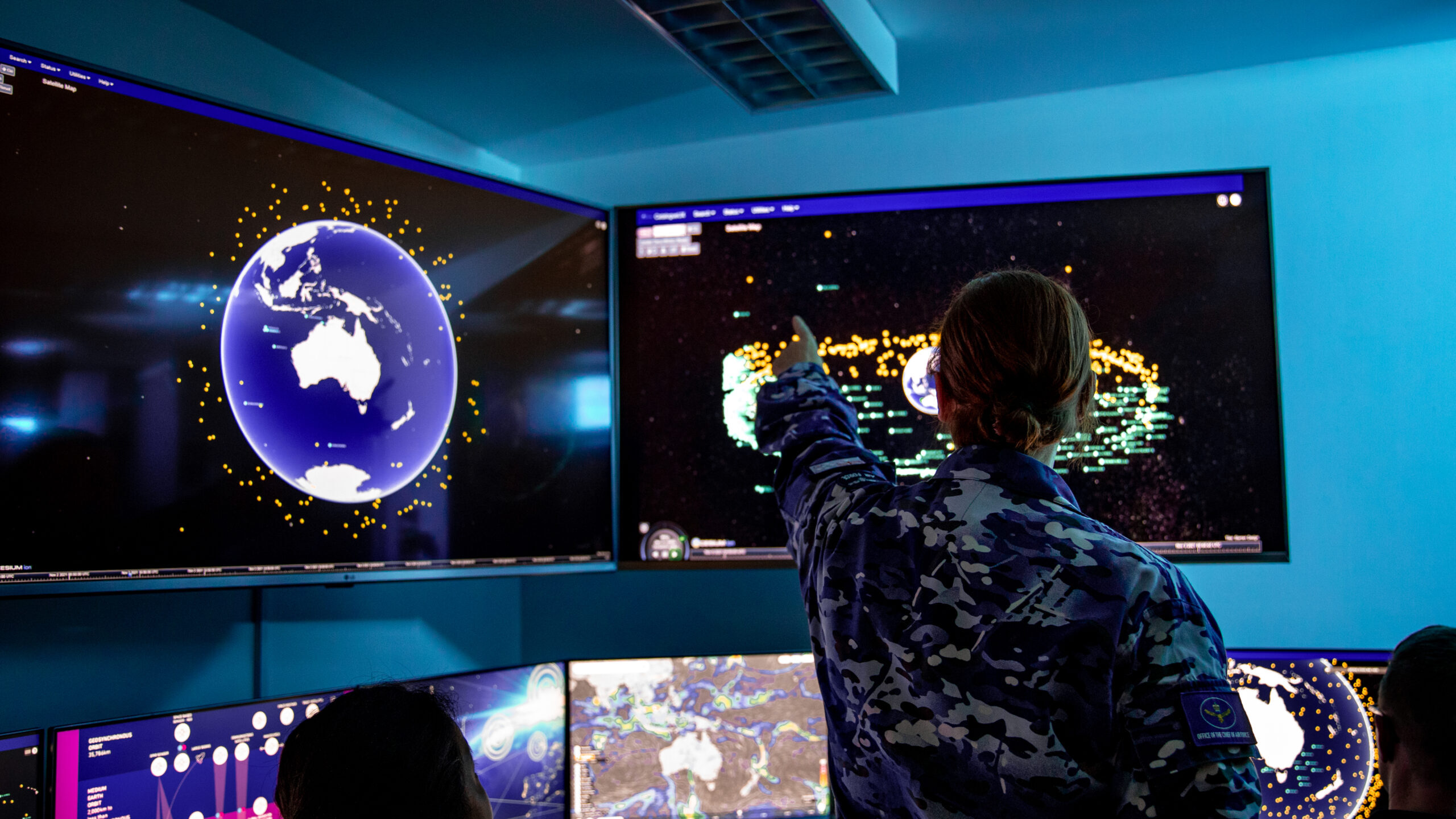
Head of Air Force Capability, Air Vice-Marshal Cath Roberts AM, CSC, inside the Electro Optic Systems (EOS) control room at Mount Stromlo Observatory, Canberra. (Australian military photo)
WASHINGTON — John Plumb, the Defense Department’s head of space policy, said he has set three priorities for his staff, one of which it to untangle the knot of security classification that makes it hard for the US to share important operational information with even its closest allies.
Indeed, he said Wednesday in a fireside chat at Center for Strategic and International Studies that cracking the conundrum of over-classification is directly related to another of his priorities: improving space cooperation with allies and partner nations.
“We often say I like to say frankly, our allies are an asymmetric advantage that neither China [nor] Russia can… match. Well, it’s only true if we actually find a way to train and fight with them at the operational level,” Plumb said.
Plumb was confirmed in March as the first-ever DoD assistant secretary for space policy, responsible for the overall supervision of policy for “space warfighting” — although his job also includes overseeing “integrated deterrence: space, nuclear weapons, cyber, missile defense, electromagnetic warfare, and countering weapons of mass destruction,” according to his official DoD biography.
He told CSIS that the inability to share information with allies is “a huge, huge problem for us, that we’re really starting to dig into.”
“I ran a couple-day summit for internal DoD stakeholders and IC [Intelligence Community] stakeholders focused on: ‘What are those things that are limiting our ability to do deeper operational cooperation with our our spacefaring allies?’ And it turned out that most of the problems there are related to over-classification,” he elaborated.
Plumb explained that this is because “some things are classified in a way that I cannot share them with allies, even if they’re highly capable.”
Indeed, many US military and IC space programs and capabilities are so secret that they are stamped as Special Access Protected (SAP), a denomination that limits knowledge about them to a handful of senior government officials. (See also: Green door programs.)
Plumb noted that his office now is working directly with the IC “on reducing some of those classification issues to the point where we can share” information with allies and partners to enable collaborative operations. He added that the over-classification issue also has relevance for enabling the industrial base to help the US military keep ahead of its adversaries.
“There’s clearly industry ramifications to especially companies that might have to build entire architectures of classified information handling — they can’t talk to other parts of their company,” he said. “We have to solve these problems so we can have our industrial base be able to move faster and really more affordable.”
He suggested, however, that the end result may not be more details about how the military and the IC operate in space making its way into the unclassified realm, available to the public.
“I think there’s this hope, probably among folks in unclassified forums that are talking about this, that the response to over-classification is to declassify things so they are unclassified. But there are many things you can declassify, and still remain classified,” he said, presumably referring to the ability to share with allies but not the public.
Further, Plumb was reluctant to be drawn out on his other priority, “space control,” or the recent Strategic Space Review that he noted was a “very classified review.”
When asked to elaborate on the work his office is doing on space control, which in Joint Doctrine is defined as requiring both offensive and defensive capabilities, he instead spoke about the concept of “mission assurance” and the role of “resilience” in deterring adversaries from either attacking in the first place or prevailing in any attack on US space systems.
“At the high level … what I have been tasked to execute and what my team is working on, along with other space stakeholders, is making sure that we can assure — this is a specific word, assure, which means continue to rely on — our space assets and space infrastructure even in conflict,” Plumb said.
“So, resilience is one of the big ways to address that. If I’m resilient enough that I’ve reduced or really eliminated the adversary’s perceived advantage to attacking a satellite, that assures my mission,” he added. “If I’m resilient enough that even if they do attack a satellite, I’m either able to fully execute my mission or do it at a slightly degraded level, than that is also an assured mission. So that’s part of the space control focus.”
As Pentagon awaits supplemental dollars, its operational funding is $2B in the hole
The House is teeing up a series of votes this weekend on separate supplemental spending bills for Israel, Taiwan and Ukraine.














